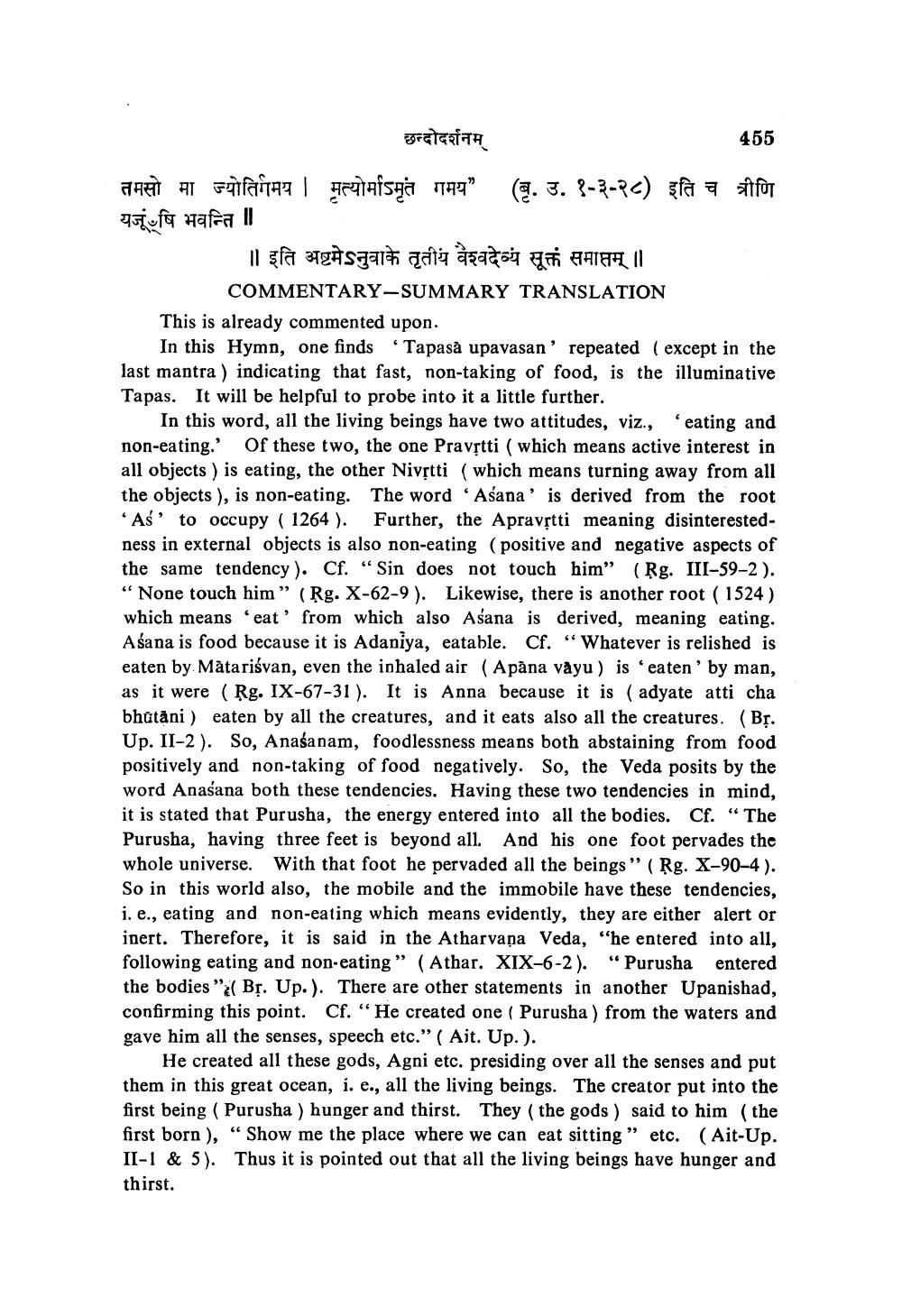________________
छन्दोदर्शनम्
तमसो मा ज्योतिर्गमय । मृत्योर्माऽमृतं गमय” (बृ. उ. १-३-२८) इति च त्रीणि यजूंषि भवन्ति ॥
॥ इति अष्टमेऽनुवाके तृतीय वैश्वदेव्यं सूक्तं समाप्तम् ॥
COMMENTARY-SUMMARY TRANSLATION
455
This is already commented upon.
In this Hymn, one finds Tapasă upavasan' repeated (except in the last mantra) indicating that fast, non-taking of food, is the illuminative Tapas. It will be helpful to probe into it a little further.
In this word, all the living beings have two attitudes, viz., eating and non-eating.' Of these two, the one Pravṛtti (which means active interest in all objects) is eating, the other Nivṛtti (which means turning away from all the objects), is non-eating. The word Asana' is derived from the root As to occupy (1264). Further, the Apravṛtti meaning disinterestedness in external objects is also non-eating (positive and negative aspects of the same tendency). Cf. "Sin does not touch him" (Rg. III-59-2). "None touch him" (Rg. X-62-9). Likewise, there is another root (1524) which means eat' from which also Asana is derived, meaning eating. Asana is food because it is Adaniya, eatable. Cf. "Whatever is relished is eaten by Matariśvan, even the inhaled air (Apana vayu) is eaten' by man, as it were (Rg. IX-67-31). It is Anna because it is (adyate atti cha bhūtāni) eaten by all the creatures, and it eats also all the creatures. (Br. Up. II-2). So, Anaśanam, foodlessness means both abstaining from food positively and non-taking of food negatively. So, the Veda posits by the word Anasana both these tendencies. Having these two tendencies in mind, it is stated that Purusha, the energy entered into all the bodies. Cf. "The Purusha, having three feet is beyond all. And his one foot pervades the whole universe. With that foot he pervaded all the beings" (Rg. X-90-4). So in this world also, the mobile and the immobile have these tendencies, i. e., eating and non-eating which means evidently, they are either alert or inert. Therefore, it is said in the Atharvana Veda, "he entered into all, following eating and non-eating" (Athar. XIX-6-2). "Purusha entered the bodies" Br. Up.). There are other statements in another Upanishad, confirming this point. Cf. "He created one (Purusha) from the waters and gave him all the senses, speech etc." (Ait. Up.).
He created all these gods, Agni etc. presiding over all the senses and put them in this great ocean, i. e., all the living beings. The creator put into the first being (Purusha) hunger and thirst. They (the gods) said to him (the first born), "Show me the place where we can eat sitting" etc. (Ait-Up. II-1 & 5). Thus it is pointed out that all the living beings have hunger and thirst.




